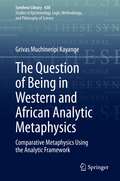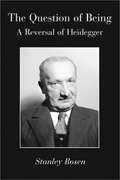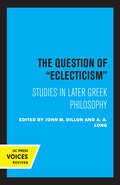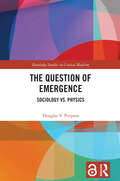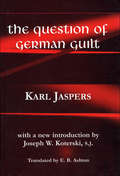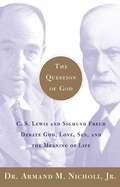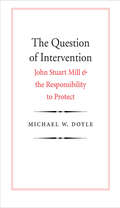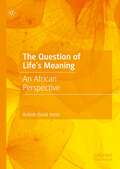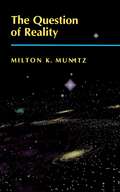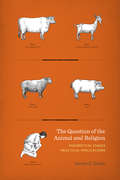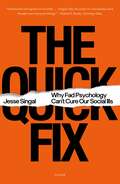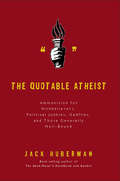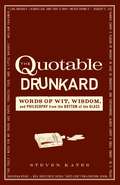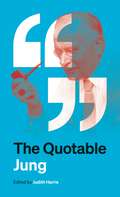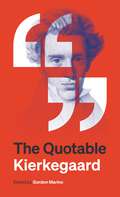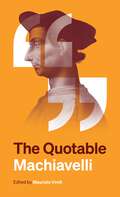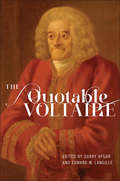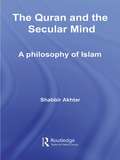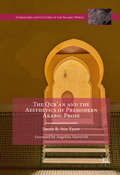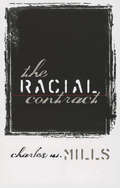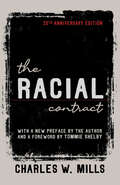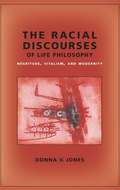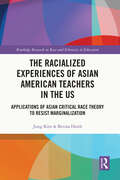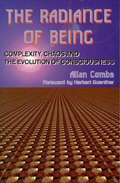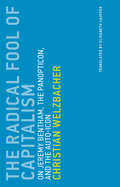- Table View
- List View
The Question of Being in Western and African Analytic Metaphysics: Comparative Metaphysics Using the Analytic Framework (Synthese Library #438)
by Grivas Muchineripi KayangeThe main aim of this book is to discuss fundamental developments on the question of being in Western and African philosophy using analytic metaphysics as a framework. It starts with the two orthodox responses to the question of being, namely, the subject-verb-object language view and the rheomodic language view. In the first view, being is conceived through the analysis of language structure, where it is represented by subjects (particulars), objects, and relations (often universals). In the second view, there are different variations; however, the common idea is that the world's structure is revealed in the root verb of terms. This suggests a holistic and dynamic conception of being, where everything is in a continuous process of action. The book builds on analytic philosophy and explores metaphysical concepts such as space-time, modality, causation, indeterminism versus determinism, and mind and body. The book shows that in both Western and African thought, (i) similarities in different studies confirm that philosophy is a universal activity, (ii) differences within a context and beyond confirm the perspectival nature of human knowledge as individuals attempt to interpret reality, and (iii) language influences the conceptualization of being in a particular area. One of the novel aspects is the development of visual and mathematical African models of space and time.
The Question of Being: A Reversal of Heidegger
by Stanley RosenRosen refutes Heidegger's claim that metaphysics (or what Heidegger calls Platonism) is derived from the Aristotelian science of being as being. He argues instead that metaphysics is simply a commonsensical reflection on the nature of ordinary experience and on standards for living a better life.
The Question of Eclecticism: Studies in Later Greek Philosophy (Hellenistic Culture and Society #3)
by A. A. Long John M. DillonThis title is part of UC Press's Voices Revived program, which commemorates University of California Press’s mission to seek out and cultivate the brightest minds and give them voice, reach, and impact. Drawing on a backlist dating to 1893, Voices Revived makes high-quality, peer-reviewed scholarship accessible once again using print-on-demand technology. This title was originally published in 1988.
The Question of Emergence: Sociology vs. Physics (Routledge Studies in Critical Realism)
by Douglas V. PorporaThis book takes the relationship between physics and sociology as its subject, focusing on the philosophical dispute between emergentism and reductionism. It argues that the mystery behind emergence disappears when we abandon the lawful understanding of causality in favor of a powers view.Adopting a critical realist perspective, it offers a completely novel approach, arguing that the mystery associated with emergence is an artifact of the Humean covering law model of causality assumed by both sides of the reductionism and emergentist debate. In this debate, both reductionists and emergentists have focused on how a single whole or composite relates to its parts and have commonly operated with an understanding of causality in terms of lawful regularities among events. As a result, emergentists have been left with a dilemma: Either admit that laws governing higher-level behavior can be explained by lower-level laws, which is reductionism, or leave the existence of the higher-level laws a mystery.The first book-length publication that addresses – and attempts to resolve – the debate over emergence and reductionism and that gives attention to emergence across the ontological levels from physics to social behavior, it will have a lively readership among critical realists. It will also be of interest to philosophers of mind, philosophers of science, social scientists, and theoretically oriented practitioners in chemistry, biology, and psychology.
The Question of German Guilt (Perspectives in Continental Philosophy)
by Karl JaspersShortly after the Nazi government fell, a philosophy professor at Heidelberg University lectured on a subject that burned the consciousness and conscience of thinking Germans. “Are the German people guilty?” These lectures by Karl Jaspers, an outstanding European philosopher, attracted wide attention among German intellectuals and students; they seemed to offer a path to sanity and morality in a disordered world. Jaspers, a life-long liberal, attempted in this book to discuss rationally a problem that had thus far evoked only heat and fury. Neither an evasive apology nor a wholesome condemnation, his book distinguished between types of guilt and degrees of responsibility. He listed four categories of guilt: criminal guilt (the commitment of overt acts), political guilt (the degree of political acquiescence in the Nazi regime), moral guilt (a matter of private judgment among one’s friends), and metaphysical guilt (a universally shared responsibility of those who chose to remain alive rather than die in protest against Nazi atrocities). Karl Jaspers (1883–1969) took his degree in medicine but soon became interested in psychiatry. He is the author of a standard work of psychopathology, as well as special studies on Strindberg, Van Gogh and Nietsche. After World War I he became Professor of Philosophy at Heidelberg, where he achieved fame as a brilliant teacher and an early exponent of existentialism. He was among the first to acquaint German readers with the works of Kierkegaard. Jaspers had to resign from his post in 1935. From the total isolation into which the Hitler regime forced him, Jaspers returned in 1945 to a position of central intellectual leadership of the younger liberal elements of Germany. In his first lecture in 1945, he forcefully reminded his audience of the fate of the German Jews. Jaspers’s unblemished record as an anti-Nazi, as well as his sentient mind, have made him a rallying point center for those of his compatriots who wish to reconstruct a free and democratic Germany.
The Question of God: C.S. Lewis and Sigmund Freud Debate God, Love, Sex, and the Meaning of Life
by Armand Nicholi"This elegantly written and compelling comparison of the worldviews of Sigmund Freud and C. S. Lewis provides a riveting opportunity to consider the most important questions mankind has ever asked: Is there a God? Does he care about me? This profound book is for anyone who is earnestly seeking answers about truth, the meaning of life, and God's existence." -- Francis Collins, Director, National Human Genome Research Institute Many of history's greatest thinkers have wrestled with the ultimate question of belief and nonbelief in God. Though it might seem unlikely that any new arguments could possibly be raised on either side, the twentieth century managed to produce two men who each made brilliant, new, and lasting arguments, one in favor of belief and one opposed. Few spokesmen have ever championed their respective positions better than Sigmund Freud and C. S. Lewis. Sadly, as far as we know, they never met or debated each other directly. In The Question of God their arguments are placed side by side, as if they were standing at podiums in a shared room. Both thought carefully about the flaws and alternatives to their positions; each considered the other's views. Both men considered the problem of pain and suffering, the nature of love and sex, and the ultimate meaning of life and death. Here, with their debate made explicit, we can take ringside seats at one of history's most profound encounters. For more than twenty-five years Armand Nicholi has studied the philosophical writings of both men, and has taught a popular course at Harvard that compares the two worldviews. In The Question of God he presents the fruits of years of labor among the published and unpublished writings of Lewis and Freud, including an extensive exploration of their private letters. He allows them to speak for themselves on every major question of belief and nonbelief, but also skillfully draws conclusions from their own lives. Why did Freud have such difficulty maintaining lifelong friendships? How did Lewis's friendships change after his transition from atheism to belief? Why was Freud unable to willfully ignore his own internal moral sense, even though he believed it to be purely a product of socialization and not in any way eternally "true"? The Question of God may be the best book about belief and nonbelief ever written, since it does not presuppose which answer is correct. Instead, it uses two of history's most articulate spokesmen to present arguments on both sides. In the end, readers must join Nicholi's hundreds of former students in deciding for themselves which path to follow.
The Question of Intervention
by Michael W. DoyleThe question of when or if a nation should intervene in another country's affairs is one of the most important concerns in today's volatile world. Taking John Stuart Mill's famous 1859 essay "A Few Words on Non-Intervention" as his starting point, international relations scholar Michael W. Doyle addresses the thorny issue of when a state's sovereignty should be respected and when it should be overridden or disregarded by other states in the name of humanitarian protection, national self-determination, or national security. In this time of complex social and political interplay and increasingly sophisticated and deadly weaponry, Doyle reinvigorates Mill's principles for a new era while assessing the new United Nations doctrine of responsibility to protect. In the twenty-first century, intervention can take many forms: military and economic, unilateral and multilateral. Doyle's thought-provoking argument examines essential moral and legal questions underlying significant American foreign policy dilemmas of recent years, including Libya, Iraq, and Afghanistan.
The Question of Life's Meaning: An African Perspective
by Aribiah David AttoeIn answering the question of life’s meaning, the African perspective is only just beginning to emerge. While this is true, a critical examination of African theories of meaningfulness, the possibility of life’s meaninglessness, as well as ideas about the proper mode/mood for living with the meaninglessness of life are largely underexplored within the African philosophical tradition. This book provides several plausible accounts of meaning in/of life from an African perspective, examines the relationship between death and life’s meaningfulness, and explores the possibility of life’s meaninglessness, proposing the “philosophy of indifference” as the proper mode/mood for living with the meaninglessness of life.
The Question of Reality
by Milton K. MunitzWhen we read that scientists have come close to pinpointing the "origin of the universe" by means of a Big Bang cosmology, or are engaged in formulating a "theory of everything," as in current ten-dimensional superstring theories of particle physics, can we doubt that such inquiries or their results inevitably raise important philosophical questions? In the present book, as well as in his previous work Cosmic Understanding, the renowned philosopher Milton Munitz attempts to answer some of these questions by examining recent scientific theories of cosmology in a philosophical context.
The Question of the Animal and Religion: Theoretical Stakes, Practical Implications
by Aaron GrossThrough an absorbing investigation into recent, high-profile scandals involving one of the largest kosher slaughterhouses in the world, located unexpectedly in Postville, Iowa, Aaron S. Gross makes a powerful case for elevating the category of the animal in the study of religion. Major theorists have almost without exception approached religion as a phenomenon that radically marks humans off from other animals, but Gross rejects this paradigm, instead matching religion more closely with the life sciences to better theorize human nature.Gross begins with a detailed account of the scandals at Agriprocessors and their significance for the American and international Jewish community. He argues that without a proper theorization of "animals and religion," we cannot fully understand religiously and ethically motivated diets and how and why the events at Agriprocessors took place. Subsequent chapters recognize the significance of animals to the study of religion in the work of Ernst Cassirer, Emile Durkheim, Mircea Eliade, Jonathan Z. Smith, and Jacques Derrida and the value of indigenous peoples' understanding of animals to the study of religion in our daily lives. Gross concludes by extending the Agribusiness scandal to the activities at slaughterhouses of all kinds, calling attention to the religiosity informing the regulation of "secular" slaughterhouses and its implications for our relationship with and self-imagination through animals.
The Quick Fix: Why Fad Psychology Can't Cure Our Social Ills
by Jesse SingalAn investigative journalist exposes the many holes in today’s bestselling behavioral science, and argues that the trendy, TED-Talk-friendly psychological interventions that are so in vogue at the moment will never be enough to truly address social injustice and inequality.With their viral TED talks, bestselling books, and counter-intuitive remedies for complicated problems, psychologists and other social scientists have become the reigning thinkers of our time. Grit and “power posing” promised to help overcome entrenched inequalities in schools and the workplace; the Army spent hundreds of millions of dollars on a positive psychology intervention geared at preventing PTSD in its combat soldiers; and the implicit association test swept the nation on the strength of the claim that it can reveal unconscious biases and reduce racism in police departments and human resources departments. But what if much of the science underlying these blockbuster ideas is dubious or fallacious? What if Americans’ longstanding preference for simplistic self-help platitudes is exerting a pernicious influence on the way behavioral science is communicated and even funded, leading respected academics and the media astray? In The Quick Fix, Jesse Singal examines the most influential ideas of recent decades and the shaky science that supports them. He begins with the California legislator who introduced self-esteem into classrooms around the country in the 1980s and the Princeton political scientist who warned of an epidemic of youthful “superpredators” in the 1990s. In both cases, a much-touted idea had little basis in reality, but had a massive impact. Turning toward the explosive popularity of 21st-century social psychology, Singal examines the misleading appeal of entertaining lab results and critiques the idea that subtle unconscious cues shape our behavior. As he shows, today’s popular behavioral science emphasizes repairing, improving, and optimizing individuals rather than truly understanding and confronting the larger structural forces that drive social ills. Like Anand Giridharadas’s Winners Take All, The Quick Fix is a fresh and powerful indictment of the thought leaders and influencers who cut corners as they sell the public half-baked solutions to problems that deserve more serious treatment.
The Quotable Atheist: Ammunition for Nonbelievers, Political Junkies, Gadflies, and Those Generally Hell-Bound (Philosophy Ser.)
by Jack HubermanSurprisingly, no book of quotations on God and religion by atheists and agnostics exists. Luckily, for the millions of American nonbelievers who have quietly stewed for years as the religious right made gains in politics and culture, the wait is over. Bestselling author Jack Huberman's zeitgeist sense has honed into the backlash building against religious fundamentalism and collected a veritable treasure trove of quotes by philosophers, scientists, poets, writers, artists, entertainers, and political figures. His colorful cast of atheists includes Karen Armstrong, Lance Armstrong, Jules Feiffer, Federico Fellini, H. L. Mencken, Ian McKellen, Isaac Singer, Jonathan Swift, Ludwig Wittgenstein, Virginia Woolf and the Marquis de Sade.
The Quotable Drunkard: Words of Wit, Wisdom, and Philosophy From the Bottom of the Glass
by Steven KatesFrom pubs, alehouses, wine bars, vineyards, across the table, and under the table comes a flowing river of thoughts about drinking. Some of it you'll find profound, some of it funny, some of it silly. But all of it's about that most inspired of human inventions: alcohol.From the ancient ("The man who isn't jolly after drinking is just a driveling idiot to my thinking." --Euripedes) to the modern ("Alcohol--the cause of and the solution to all of life's problems." --Homer Simpson), here is wit, wisdom, and drunken ramblings about beer, wine, whiskey, gin, and every other alcoholic substance humans have happily used since the beginning of time to pickle their livers. Mixed with favorite drink recipes, short biographies of potable quotables, and information about favorite watering spots, this is a resource you will want to keep next to the bottle of Beefeaters and bitters.
The Quotable Jung
by C. G. JungThe definitive one-volume collection of Jung quotationsC. G. Jung (1875–1961) was a preeminent thinker of the modern era. In seeking to establish an interdisciplinary science of analytical psychology, he studied psychiatry, religion, mysticism, literature, physics, biology, education, and criminology. He introduced the concepts of extraversion and introversion, and terms such as complex, archetype, individuation, and the collective unconscious. He stressed the primacy of finding meaning in our lives.The Quotable Jung is the single most comprehensive collection of Jung quotations ever assembled. It is the essential introduction for anyone new to Jung and the Jungian tradition. It will also inspire those familiar with Jung to view him in an entirely new way. The Quotable Jung presents hundreds of the most representative selections from the vast array of Jung's books, essays, correspondence, lectures, seminars, and interviews, as well as the celebrated Red Book, in which Jung describes his own fearsome confrontation with the unconscious. Organized thematically, this collection covers such topics as the psyche, the symbolic life, dreams, the analytic process, good and evil, creativity, alchemical transformation, death and rebirth, the problem of the opposites, and more. The quotations are arranged so that the reader can follow the thread of Jung&’s thought on these topics while gaining an invaluable perspective on his writings as a whole.Succinct and accessible, The Quotable Jung also features a preface by Judith Harris and a detailed chronology of Jung&’s life and work.The single most comprehensive collection of Jung quotations ever assembledFeatures hundreds of quotesCovers such topics as the psyche, dreams, good and evil, death and rebirth, and moreIncludes a detailed chronology of Jung&’s life and workServes as the ideal introduction to Jung and the Jungian tradition
The Quotable Kierkegaard
by Søren KierkegaardThe most comprehensive and authoritative collection of Kierkegaard quotations ever published"Why I so much prefer autumn to spring is that in the autumn one looks at heaven—in the spring at the earth."—Søren KierkegaardThe father of existentialism, Søren Kierkegaard (1813-1855) was a philosopher who could write like an angel. With only a sentence or two, he could plumb the depths of the human spirit. In this collection of some 800 quotations, the reader will find dazzling bon mots next to words of life-changing power. Drawing from the authoritative Princeton editions of Kierkegaard's writings, this book presents a broad selection of his wit and wisdom, as well as a stimulating introduction to his life and work.Organized by topic, this volume covers notable Kierkegaardian concerns such as anxiety, despair, existence, irony, and the absurd, but also erotic love, the press, busyness, and the comic. Here readers will encounter both well-known quotations ("Life must be understood backward. But then one forgets the other principle, that it must be lived forward") and obscure ones ("Beware false prophets who come to you in wolves' clothing but inwardly are sheep—i.e., the phrasemongers"). Those who spend time in these pages will discover the writer who said, "my grief is my castle," but who also taught that "the best defense against hypocrisy is love."Illuminating and delightful, this engaging book also provides a substantial portrait of one of the most influential of modern thinkers.Gathers some 800 quotationsDrawn from the authoritative Princeton editions of Kierkegaard's writingsIncludes an introduction, a brief account and timeline of Kierkegaard's life, a guide to further reading, and an index
The Quotable Machiavelli
by Niccolò MachiavelliA collection of insightful and revealing quotations on a wide range of subjects from the father of modern politicsNiccolò Machiavelli (1469–1527) is the father of modern political thought, but he is also one of the greatest writers of the Renaissance and his wisdom and style extend far beyond politics to encompass a compelling philosophy of life as well. In The Quotable Machiavelli, Maurizio Viroli, one of the world's leading Machiavelli scholars, offers a rich collection of the Florentine’s most memorable words on a wide range of subjects, including politics, the human condition, religion, love and happiness, antiquity and history, patriotism, and virtue. Drawing on Machiavelli’s entire body of writings, and including little-known quotations as well as famous passages, the book shows the full scope of his thought and belies the cliché that he was a "Machiavellian" cynic. In addition to Machiavelli’s own words on dozens of subjects of perennial interest, the book includes some almost unknown texts in which his contemporaries describe him. Complete with a biographical introduction, the book serves as a handy reference and a smart and lively introduction to a masterly thinker and writer.Includes a rich collection of Machiavelli’s most memorable words on a wide range of subjects, from politics to the human condition—almost 700 quotations in allEdited and introduced by one of the world’s leading Machiavelli scholarsServes as a smart and lively introduction to Machiavelli’s life and worksDraws on the complete body of Machiavelli’s writingsFeatures a brief biography of Machiavelli, a chronology of his life, suggestions for further reading, and an index
The Quotable Voltaire
by François-Marie Arouet (1694-1778)The author of more than 2,000 books and pamphlets, Voltaire (François-Marie Arouet, 1694-1778) was one of the most prolific writers of the eighteenth century, and also one of the wittiest and most insightful. This unique collection of over 800 of Voltaire’s wisest passages and choicest bons mots runs the gamut on topics from adultery to Zoroaster, in both English and French. Drawing from a wide range of his publications, private letters, and remarks recorded by his contemporaries, The Quotable Voltaire includes material never before gathered in a single volume. English translations appear alongside the original French, and each quote is thoroughly indexed and referenced, with page numbers for both the first known publication edition of each entry and the most recent edition of Voltaire’s works. The book also features over 400 quotes about Voltaire, including commentary by eighteenth-century luminaries like Samuel Johnson, Catherine the Great, Casanova, and John Adams, as well as an eclectic assortment of modern-day personages ranging from Winston Churchill and Jorge Luis Borges to Mae West and Mike Tyson. Lavishly illustrated with nearly three dozen images of Voltaire-related art, this collection opens with a scholarly essay that recounts the great man’s life and reflects on his outsized influence on Western culture. Whether you are a Voltaire scholar or a neophyte, The Quotable Voltaire is the perfect introduction to a brilliant mind.
The Quran and the Secular Mind: A Philosophy of Islam
by Shabbir AkhtarThis book is concerned with the rationality and plausibility of the Muslim faith and the Qur'an, and in particular how they can be interrogated and understood through Western analytical philosophy. It also explores how Islam can successfully engage with the challenges posed by secular thinking. The Quran and the Secular Mind will be of interest to students and scholars of Islamic philosophy, philosophy of religion, Middle East studies, and political Islam.
The Qur’an and the Aesthetics of Premodern Arabic Prose
by Sarah R. bin TyeerThis book approaches the Qur'an as a primary source for delineating the definition of ugliness, and by extension beauty, and in turn establishing meaningful tools and terms for literary criticism within the discipline of classical Arabic literature (adab). Focusing on the aesthetic dimension of the Qur'an, this methodology opens up new horizons for reading adab by reading the tradition from within the tradition and thereby examining issues of "decontextualisation" and the "untranslatable. " This approach, in turn, invites Comparatists, as well as Arabists, to consider other means and perspectives for approaching adab besides the Bakhtinian carnival. Applying this critical strategy to literary works as diverse as One Thousand and One Nights and The Epistle of Forgiveness, Sarah R. bin Tyeer aims to prove two major points: how Bakhtin's aesthetics is anachronistic and therefore theoretically inappropriate when applied to certain literary works and how ultimately this literary methodology is sometimes used as a proxy for ungrounded and, sometimes, unfair arguments by other scholars.
The Racial Contract
by Charles W. MillsThe Racial Contract puts classic Western social contract theory, deadpan, to extraordinary radical use. With a sweeping look at the European expansionism and racism of the last five hundred years, Charles W. Mills demonstrates how this peculiar and unacknowledged "contract" has shaped a system of global European domination: how it brings into existence "whites" and "non-whites," full persons and sub-persons, how it influences white moral theory and moral psychology; and how this system is imposed on non-whites through ideological conditioning and violence. The Racial Contract argues that the society we live in is a continuing white supremacist state. Holding up a mirror to mainstream philosophy, this provocative book explains the evolving outline of the racial contract from the time of the New World conquest and subsequent colonialism to the written slavery contract, to the "separate but equal" system of segregation in the twentieth-century United States. According to Mills, the contract has provided the theoretical architecture justifying an entire history of European atrocity against non-whites, from David Hume's and Immanuel Kant's claims that blacks had inferior cognitive power, to the Holocaust, to the kind of imperialism in Asia that was demonstrated by the Vietnam War. Mills suggests that the ghettoization of philosophical work on race is no accident. This work challenges the assumption that mainstream theory is itself raceless. Just as feminist theory has revealed orthodox political philosophy's invisible white male bias, Mills's explication of the racial contract exposes its racial underpinnings.
The Racial Contract
by Charles W. MillsThe Racial Contract puts classic Western social contract theory, deadpan, to extraordinary radical use. With a sweeping look at the European expansionism and racism of the last five hundred years, Charles W. Mills demonstrates how this peculiar and unacknowledged "contract" has shaped a system of global European domination: how it brings into existence "whites" and "non-whites," full persons and sub-persons, how it influences white moral theory and moral psychology; and how this system is imposed on non-whites through ideological conditioning and violence. The Racial Contract argues that the society we live in is a continuing white supremacist state.As this 25th anniversary edition—featuring a foreword by Tommy Shelbie and a new preface by the author—makes clear, the still-urgent The Racial Contract continues to inspire, provoke, and influence thinking about the intersection of the racist underpinnings of political philosophy.
The Racial Discourses of Life Philosophy: Négritude, Vitalism, and Modernity (New Directions in Critical Theory #45)
by Donna JonesIn the early twentieth century, the life philosophy of Henri Bergson summoned the élan vital, or vital force, as the source of creative evolution. Bergson also appealed to intuition, which focused on experience rather than discursive thought and scientific cognition. Particularly influential for the literary and political Négritude movement of the 1930s, which opposed French colonialism, Bergson's life philosophy formed an appealing alternative to Western modernity, decried as "mechanical," and set the stage for later developments in postcolonial theory and vitalist discourse. Revisiting narratives on life that were produced in this age of machinery and war, Donna V. Jones shows how Bergson, Nietzsche, and the poets Leopold Senghor and Aimé Césaire fashioned the concept of life into a central aesthetic and metaphysical category while also implicating it in discourses on race and nation. Jones argues that twentieth-century vitalism cannot be understood separately from these racial and anti-Semitic discussions. She also shows that some dominant models of emancipation within black thought become intelligible only when in dialogue with the vitalist tradition. Jones's study strikes at the core of contemporary critical theory, which integrates these older discourses into larger critical frameworks, and she traces the ways in which vitalism continues to draw from and contribute to its making.
The Racialized Experiences of Asian American Teachers in the US: Applications of Asian Critical Race Theory to Resist Marginalization (Routledge Research in Race and Ethnicity in Education)
by Jung Kim Betina HsiehDrawing on in-depth interviews, this text examines how Asian American teachers in the US have adapted, persisted, and resisted racial stereotyping and systematic marginalization throughout their educational and professional pathways. Utilizing critical perspectives combined with tenets of Asian Critical Race Theory, Kim and Hsieh structure their findings through chapters focused on issues relating to anti-essentialism, intersectionality, and the broader social and historical positioning of Asians in the US. Applying a critical theoretical lens to the study of Asian American teachers demonstrates the importance of this framework in understanding educators’ experiences during schooling, training, and teaching, and in doing so, the book highlights the need to ensure visibility for a community so often overlooked as a "model minority", and yet one of the fastest growing racial groups in the US. This text will benefit researchers, academics, and educators with an interest in the sociology of education, multicultural education, and teachers and teacher education more broadly. Those specifically interested in Asian American history and the study of race and ethics within Asian studies will also benefit from this book.
The Radiance of Being: Complexity, Chaos and the Evolution of Consciousness
by Allan CombsIn this ground-breaking work, Allan Combs presents a wide-ranging survey of the nature and origins of consciousness research, viewing consciousness as a dynamic and self-organizing process with evolutionary potential. Combs reviews the work of evolutionary theorists such as Pierre Teilhard de Chardin, Ken Wilber, Jean Gebser, and Sri Aurobindo.
The Radical Fool of Capitalism: On Jeremy Bentham, the Panopticon, and the Auto-Icon (Untimely Meditations #10)
by Christian WelzbacherA fresh interpretation of Jeremy Bentham, finding that his “radical foolery” embodied a social ethics that was revolutionary for its time. Jeremy Bentham (1748–1832) is best remembered today as the founder of utilitarianism (a philosophy infamously abused by the Victorians) and the conceiver of the Panopticon, the circular prison house in which all prisoners could be seen by an unseen observer—later seized upon by Michel Foucault as the apotheosis of the neoliberal control society. In this volume in the Untimely Meditation series, Christian Welzbacher offers a new interpretation of Bentham, arguing that his “radical foolery” (paraphrasing Goethe's characterization of Bentham) actually embodied a social ethics that was new for its time and demands proper historical contextualization rather than retroactive analysis from the vantage point of late capitalism. Welzbacher provides just such an analysis, offering an account of the two great utilitarian projects that occupied Bentham all his life: the Panopticon and the Auto-Icon. Welzbacher rescues the Panopticon from the misapprehensions of Foucault, Orwell, and Lacan, arguing that Bentham saw the Panopticon as a pedagogical instrument incorporating the tenets of reason; construction and function, plan and influence, architecture and politics are brought into alignment. Bentham extolled the discovery in words that could easily be ascribed to Le Corbusier, Bruno Taut, or any other modernist architect. The Auto-Icon expressed Bentham's theories that the dead should benefit later generations; these theories were effectively sealed when Bentham decided to have his body preserved and put on display. (It can be seen today in a cabinet at University College London.) He also donated his inner organs to science—a practice outlawed at the time—and posthumously stage-managed his own ceremonial autopsy.Welzbacher reveals a Bentham who raised questions that feel familiar and current, invoking topoi that would come to define the modern era and that reverberate to this day.
